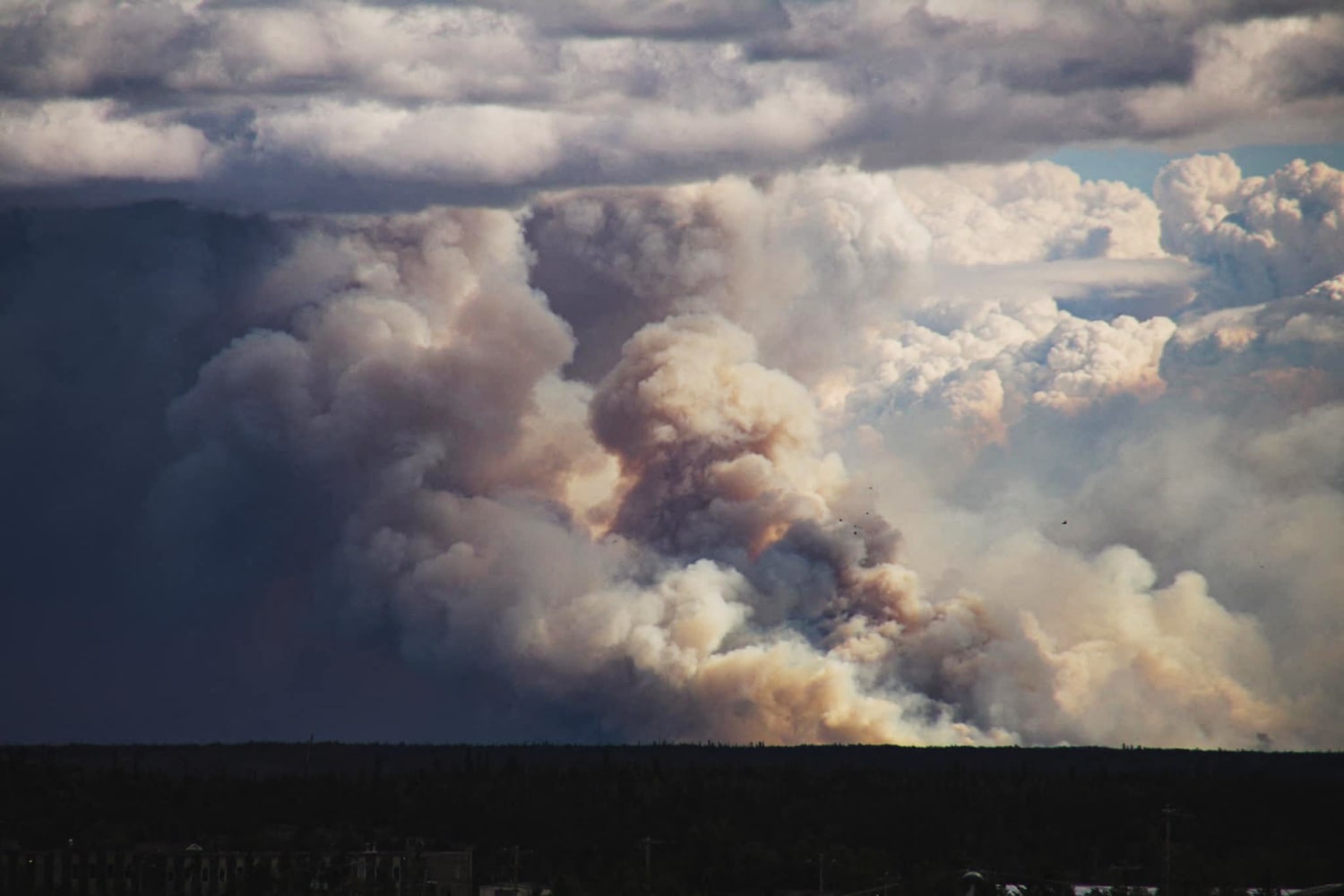
A woman whose family evacuated the town of Hay River on Sunday told CBC that their vehicle began to melt as they drove through embers, the front window cracked and the vehicle filled with smoke that made it difficult to see the road ahead.
“I was obviously scared the tire was going to break, our car was going to catch on fire and then it went from just embers to full smoke,” said Lisa Mundy, who was traveling with her husband and their 6-year-old and 18-month-old children. She said they called 911 after they drove into the ditch a couple of times.
She said her son kept saying: “I don’t want to die, mommy.”
Authorities said the intensive care unit at a Yellowknife hospital would close Friday and in-patient units from Stanton Territorial Hospital could be moved in the coming days. Most long-term care patients were transferred to institutions to the south, the Health and Social Services Authority said on its website.
Officials said evacuees who can’t find somewhere to stay can get support in three centers in the province of Alberta — the closest was more than 620 miles by road from Yellowknife.
Officials opened a reception center at the Calgary airport in preparation for the arrival of thousands of evacuees. Another center was set up at a hotel for those who drove to the city, said Iain Bushell, the city’s director of emergency management.
Evacuation flights are only for those who cannot leave by road, who are immunocompromised or who have conditions that put them at higher risk, officials said.
“We’re all tired of the word unprecedented, yet there is no other way to describe this situation in the Northwest Territories,” Premier Caroline Cochrane posted on X, formerly known as Twitter.
The evacuation order issued Wednesday night applies to Yellowknife and the neighboring First Nations communities of Ndilo and Dettah.
Indigenous communities hit hard by wildfires
Indigenous communities have been hit hard by the wildfires, which threaten important cultural activities such as hunting, fishing and gathering native plants.
Amy Cardinal Christianson, an Indigenous fire specialist with Parks Canada, has said the wildfires “are so dangerous and so fast-moving” that evacuations increasingly are necessary, which is a challenge in remote communities where there might be one road in, or no roads at all.
Officials in British Columbia, where about 370 fires are burning, also were bracing for more evacuations, after dry lightning and brisk winds were forecast for the coming days.
Source: | This article originally belongs to Nbcnews.com










